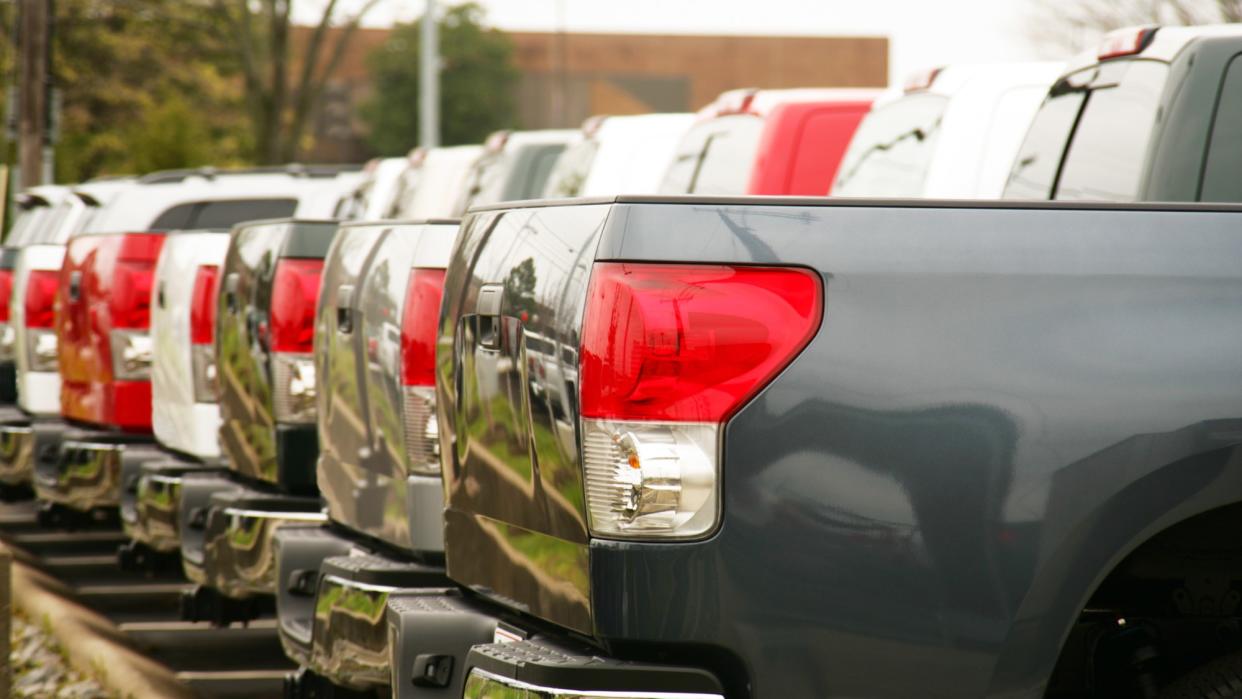Car fuel efficiency is running out of gas

In America, bigger is better, especially when it comes to cars. While the country has made major strides in improving vehicle fuel economy and promoting electric and hybrid models, the public can't quite shake its love for pickup trucks and SUVs. Unfortunately, those beloved vehicles are well-known gas guzzlers with significantly worse fuel efficiency than smaller car models. Despite record warming across the globe, the demand for large cars is preventing the U.S. from meeting its promised national fuel-efficiency goals.
The bigger, the worser
The U.S. National Highway Traffic Safety Administration set a goal for new passenger cars and light trucks to reach an average of 49 miles per gallon by 2026. However, according to data released by the Environmental Protection Agency (EPA), the average automobile fuel economy in 2022 was 26 miles per gallon. To meet the mileage goals, carmakers need to ramp up their fuel efficiency, but Americans' love of large vehicles is dragging down efficiency.
Gas prices were high through most of the 2000s, which pushed many consumers to consider smaller cars. Then, between 2015 and 2022, gas prices dropped and, as The Washington Post explained, "the American passion for gas guzzlers was rekindled." This renewed bond was reflected in the market, with 63% of all new vehicles built in model year 2022 being SUVs, pickup trucks, minivans and vans, which "are subject to less stringent corporate average fuel economy standards, as opposed to the more stringent light-duty regulations," according to Ars Technica. The EPA predicts that the number of larger vehicles being produced is only going to increase.
"The drop in [small] cars and increase in SUVs is definitely detrimental to overall industry fuel economy," Mark Schirmer, a spokesperson for Cox Automotive, an auto industry research firm, told The Post. Specifically, larger vehicles "burn through more gas than smaller cars," according to The Verge, "which also means that they create more tailpipe pollution that worsens air quality and causes climate change." It is also unlikely that internal combustion engines in SUVs and pickup trucks will become much more efficient. "The gains that are made on pure gasoline engines are getting more difficult and more expensive to make," Schirmer said.
Moving forward
Despite the popularity of trucks and SUVs, electric and hybrid vehicles are indeed growing more prevalent. "From now on, the story of fuel efficiency in the United States is likely to be a tale of two types of car buyers," per The Washington Post. "A growing share of Americans will buy more efficient electric vehicles and hybrids. But another large group will continue to buy gas guzzlers." The EPA showed that close to 10% of cars and trucks sold last year were electric, with hybrids making up a similar share of sales. Emissions from vehicles dropped 3% last year, so progress is being made. But larger vehicles are slowing that progress.
The market trend towards larger vehicles will continue to be a problem, even for vehicles that don't require gas. "Larger electric vehicles are problematic, too," The Verge explained, "since they create more particle pollution from the wear and tear of roads and tires." Better for the climate would be to produce fewer large vehicles in general and aim to make those fewer large vehicles hybrids or electrics. Best of all, arguably, would be to reduce reliance on private vehicles in the first place.

